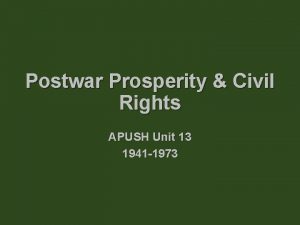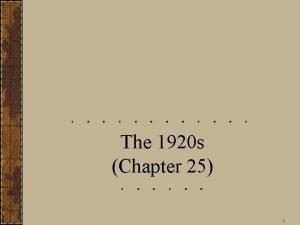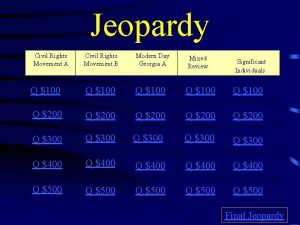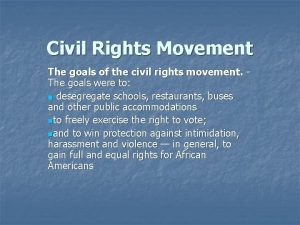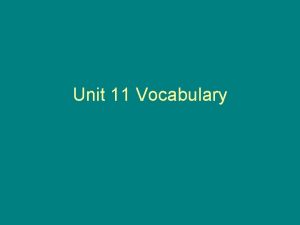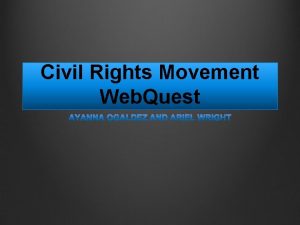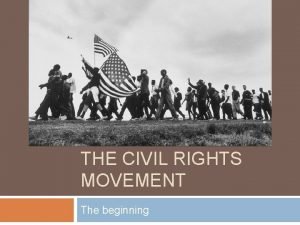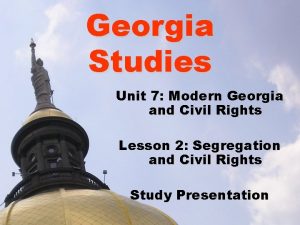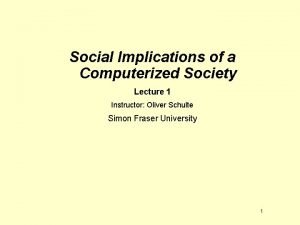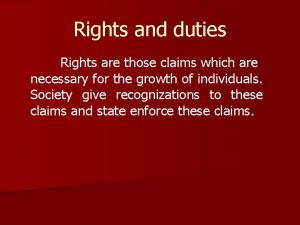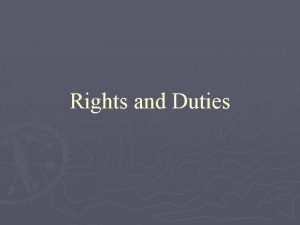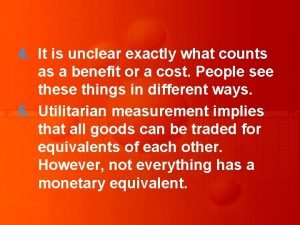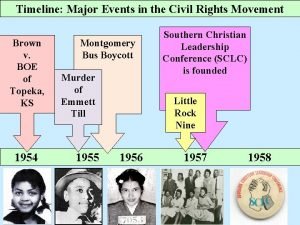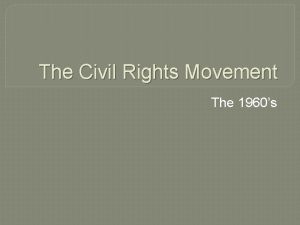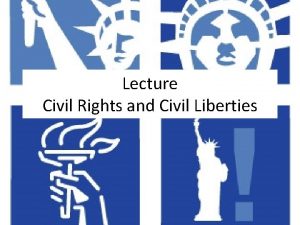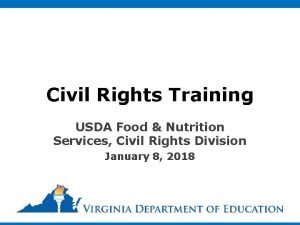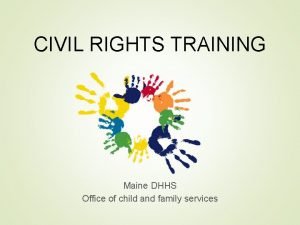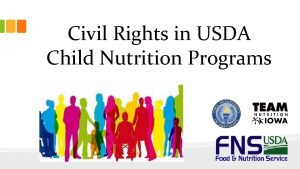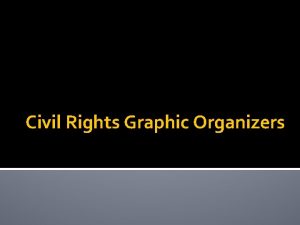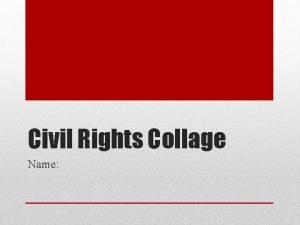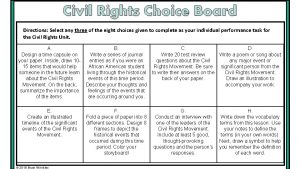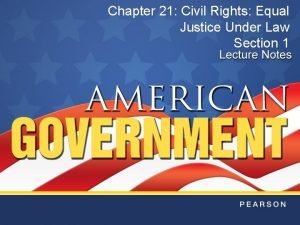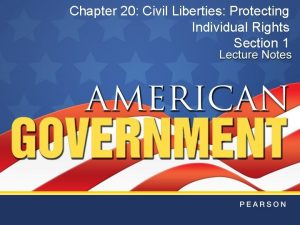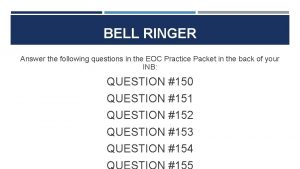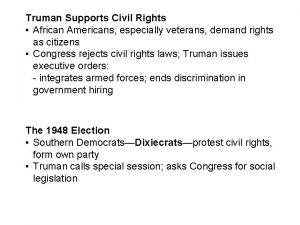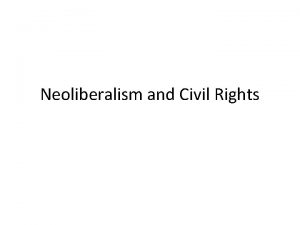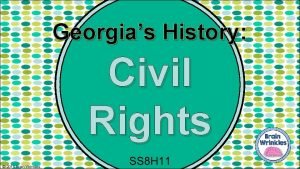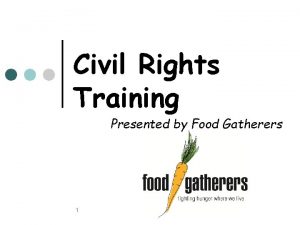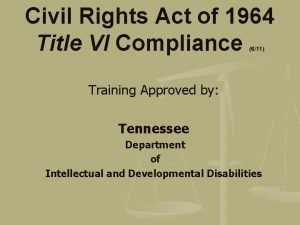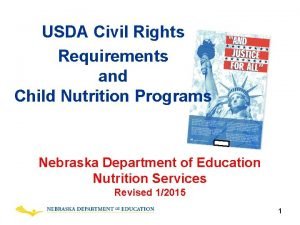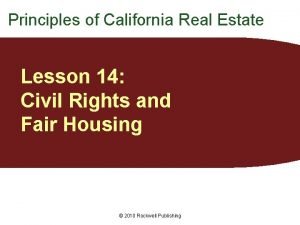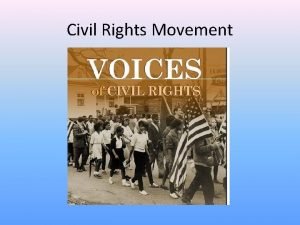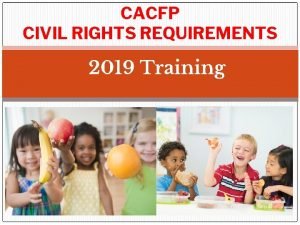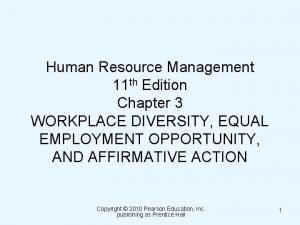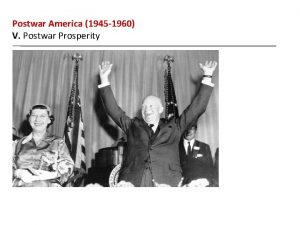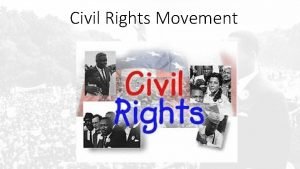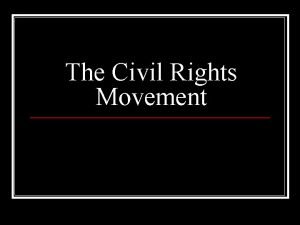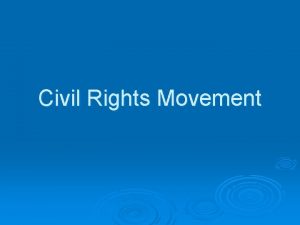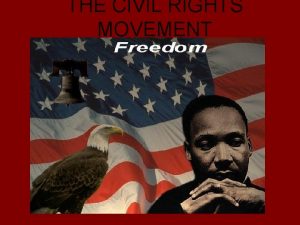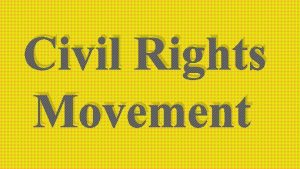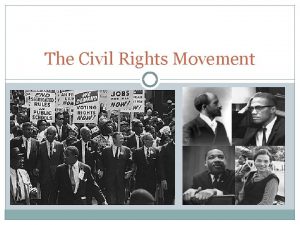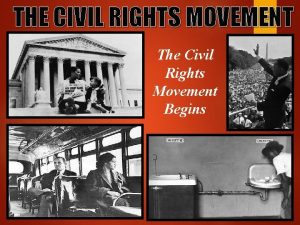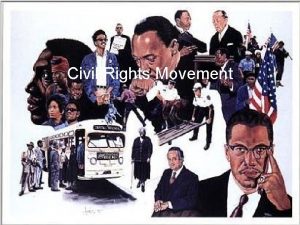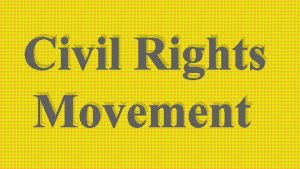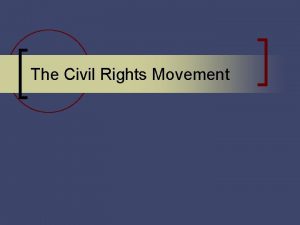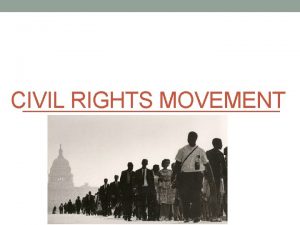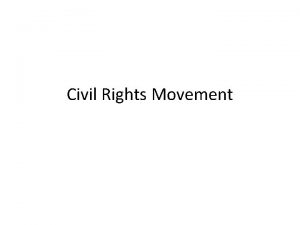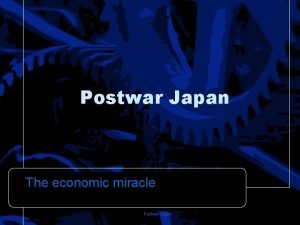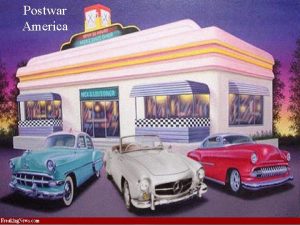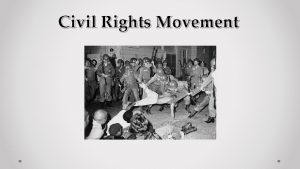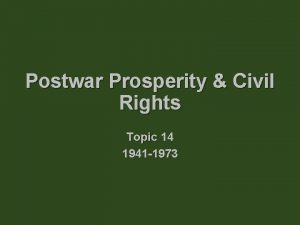POSTWAR PROSPERITY AND THE CIVIL RIGHTS MOVEMENT G





































- Slides: 37

POSTWAR PROSPERITY AND THE CIVIL RIGHTS MOVEMENT

G. I. BILL OF RIGHTS • AKA the Servicemen’s Readjustment Act • Benefits to veterans • Unemployment • Low rate mortgages • Loans • Money for education

THE BABY BOOM • After war, birth rate surged. • People born in postwar years known as the “baby boomers. ”

POSTWAR ECONOMIC POLICIES • Taft-Hartley Act • Businesses can hire non-union workers • Gross National Product (GNP) – goods and services produced in one year by all Americans. • Doubled between 1945 -1960. • Incomes rose by 59% between 1950 -1962

THE SUBURBS • Levittown, NY • First mass-produced housing development. • Assembly line production used • Suburbs • People rushed to leave cities in the 1950 s • Inner cities became increasingly poor

EISENHOWER YEARS • Federal Highway Act • Led to the construction of the Interstate Highway System. • Built to move troops and evacuate people quickly • Conformity emphasized over individuality • “Leave it to Beaver” and “Father Knows Best” emphasized what an American family should be


THE CIVIL RIGHTS MOVEMENT • Jim Crow Laws still enforced racial segregation.

WHY DID THE CIVIL RIGHTS MOVEMENT BEGIN? • NAACP and National Urban League – fought for African-American rights • Howard University – historically black university • Charles Hamilton Houston – trained lawyers to challenge segregation

• Congress of Racial Equality (CORE) • Founded by James Farmer • Used non-violent means to combat segregation.

ENDING RACIAL SEGREGATION • Truman Years • 1947, Jackie Robinson – first African-American Major League baseball player • Truman desegregated the military

Brown v. Board of Education of Topeka, Kansas, 1954 • Overturned Plessy v. Ferguson – racial segregation ok if “separate but equal” • Thurgood Marshall argued against segregation • Chief Justice Warren • Unanimous decision – school segregation ended

• Lynchings and murders • Increased following Brown v. Board • Emmet Till

• Montgomery Bus Boycott, 1955 -56 • Rosa Parks – refused to leave “white” section of a bus – arrested. • Challenged segregation on public transportation • Lead by Dr. Martin Luther King, Jr. • Courts ruled segregation on public buses was unconstitutional. • Led to formation of the Southern Christian Leadership Council, SCLC • Non-violent


• Little Rock, Arkansas, 1957 • 9 black children admitted to a white high school • Governor used National Guard to block them from entering the school • Eisenhower pressured the governor to allow them to go to school – but they weren’t protected • “Little Rock Nine” • Eisenhower sent federal troops to protect the black students


• Civil Rights Acts of 1957 and 1960 • 1957 – focused on voting rights, first civil rights legislation since Reconstruction • 1960 – punishes those stopping blacks from voting • Acts mostly ineffective

• “Sit-ins” and SNCC • Students sat in “white only” sections at lunch counters. • Student Nonviolent Coordinating Committee, SNCC • Formed by students in 1960

• “Freedom Rides” • Organized by CORE • 1961 • Interracial groups traveled in bus across the South challenging segregation

• Letter from Birmingham Jail • MLK arrested for marching in Birmingham • Wrote letter explaining why African-Americans had to right for equal rights. • Marches televised – Americans saw brutal police tactics to breakup peaceful marches

• “Injustice anywhere is a threat to justice everywhere. We are caught in an inescapable network of mutuality, tied in a single garment of destiny. Whatever affects one directly, affects all indirectly. ” • “We know through painful experience that freedom is never voluntarily given by the oppressor; it must be demanded by the oppressed. ” • “So I have tried to make it clear that it is wrong to use immoral means to attain moral ends. But now I must affirm that it is just as wrong, or even more so, to use moral means to preserve immoral ends. ” • “One has not only a legal, but a moral responsibility to obey just laws. Conversely, one has a moral responsibility to disobey unjust laws. ”

• March on Washington, 1963 • Organized by A. Philip Randolph, MLK, and Bayard Rustin • Supported civil rights bill proposed by JFK. • “I Have a Dream” speech given

• Civil Rights under President Johnson • Pushed through JFK’s civil rights bill

• The Struggle for Voting Rights • 24 th Amendment - prohibited blocking voting rights due to inability to pay a tax • “Freedom Summer” – push to register black voters • 3 volunteers from NY were killed by KKK • Black churches and homes bombed


• Voting Rights Act of 1965 • Blocked literacy tests from being used • No poll taxes

• Affirmative Action • Johnson signed executive order requiring employers to hire more black and women applicants • Robert Weaver - first African-American cabinet member • Thurgood Marshall – first African-American Supreme Court Justice

• Regents of California v Bakke, 1978 – challenged affirmative action as “reverse discrimination” • Court ruled race can be taken into account in college admissions • No quotas – fixed number of places for certain races

THE BLACK POWER MOVEMENT • “Black Power” • Vote to improve conditions, take greater pride in culture and history • Nation of Islam • Elijah Muhammad – believed Islam should be religion of black Americans, blacks should form separate state

• Malcolm X • Converted to National of Islam • Believed violence should be met with violence • Separation of blacks and whites and “black nationalism” • 1964, broke with Nation of Islam. • Assassinated in 1965 by Nation of Islam members

• Stokely Carmichael • Founder of SNCC • Introduced the term “Black Power” • No integration • Moved to Africa

• Black Panthers • 1966, formed by Bobby Seale and Huey Newton • Militant • Originally formed to protect black neighborhoods from police violence • Provided social programs for black youth • Free breakfast program to feed poor black children • 10 point program • Demand for reparations

1. We Want Freedom. We Want Power To Determine The Destiny Of Our Black Community. 2. We Want Full Employment For Our People. 3. We Want An End To The Robbery By The Capitalists Of Our Black Community. 4. We Want Decent Housing Fit For The Shelter Of Human Beings. 5. We Want Education For Our People That Exposes The True Nature Of This Decadent American Society. We Want Education That Teaches Us Our True History And Our Role In The Present-Day Society. 6. We Want All Black Men To Be Exempt From Military Service. 7. We Want An Immediate End To Police Brutality And Murder Of Black People. 8. We Want Freedom For All Black Men Held In Federal, State, County And City Prisons And Jails. 9. We Want All Black People When Brought To Trial To Be Tried In Court By A Jury Of Their Peer Group Or People From Their Black Communities, As Defined By The Constitution Of The United States. 10. We Want Land, Bread, Housing, Education, Clothing, Justice And Peace.


FLORIDA • James Weldon Johnson – wrote “Lift Every Voice and Sing” • Zora Neale Hurston – Harlem Renaissance • A. Philip Randolph – March on Washington • Tallahassee Bus Boycott • 1956 – similar to Montgomery bus boycott. FAMU students

• Harry T. Moore • organized NAACP in Florida. • Involved in bringing justice to black men falsely accused of rape • Sheriff killed them • Moore assassinated after calling for sheriff’s arrest
 Montgomery bus boycott apush
Montgomery bus boycott apush Chapter 14 postwar prosperity and civil rights
Chapter 14 postwar prosperity and civil rights Civil rights and civil liberties webquest
Civil rights and civil liberties webquest Mother of the modern day civil rights movement
Mother of the modern day civil rights movement Civil rights movement jeopardy
Civil rights movement jeopardy Goals of the civil rights movement
Goals of the civil rights movement Civil rights movement vocabulary
Civil rights movement vocabulary Civil rights movement webquest
Civil rights movement webquest The civil rights movement
The civil rights movement Civil rights movement essential questions
Civil rights movement essential questions Unit 7 modern ga and civil rights
Unit 7 modern ga and civil rights Negative rights vs positive rights
Negative rights vs positive rights Duties towards self
Duties towards self Legal rights vs moral rights
Legal rights vs moral rights Negative right
Negative right Civil rights timeline of events
Civil rights timeline of events Civil rights sitins
Civil rights sitins Define civil rights
Define civil rights Usda civil rights training
Usda civil rights training Civil rights training certificate
Civil rights training certificate Civil rights in child nutrition programs
Civil rights in child nutrition programs Civil rights graphic organizer
Civil rights graphic organizer Civil rights collage
Civil rights collage Civil rights choice board
Civil rights choice board Chapter 21 civil rights equal justice under law
Chapter 21 civil rights equal justice under law Chapter 20 civil liberties protecting individual rights
Chapter 20 civil liberties protecting individual rights Civil rights bell ringers
Civil rights bell ringers Truman supports civil rights
Truman supports civil rights Characteristics of civil rights
Characteristics of civil rights Civil rights cloze notes 1
Civil rights cloze notes 1 Civil rights cloze notes
Civil rights cloze notes Civil rights training quiz answers
Civil rights training quiz answers Title vi of the civil rights act of 1964
Title vi of the civil rights act of 1964 Civil rights in child nutrition programs
Civil rights in child nutrition programs Unruh civil rights act real estate
Unruh civil rights act real estate Civil rights movment
Civil rights movment Cacfp civil rights
Cacfp civil rights Title vii of the civil rights act
Title vii of the civil rights act
